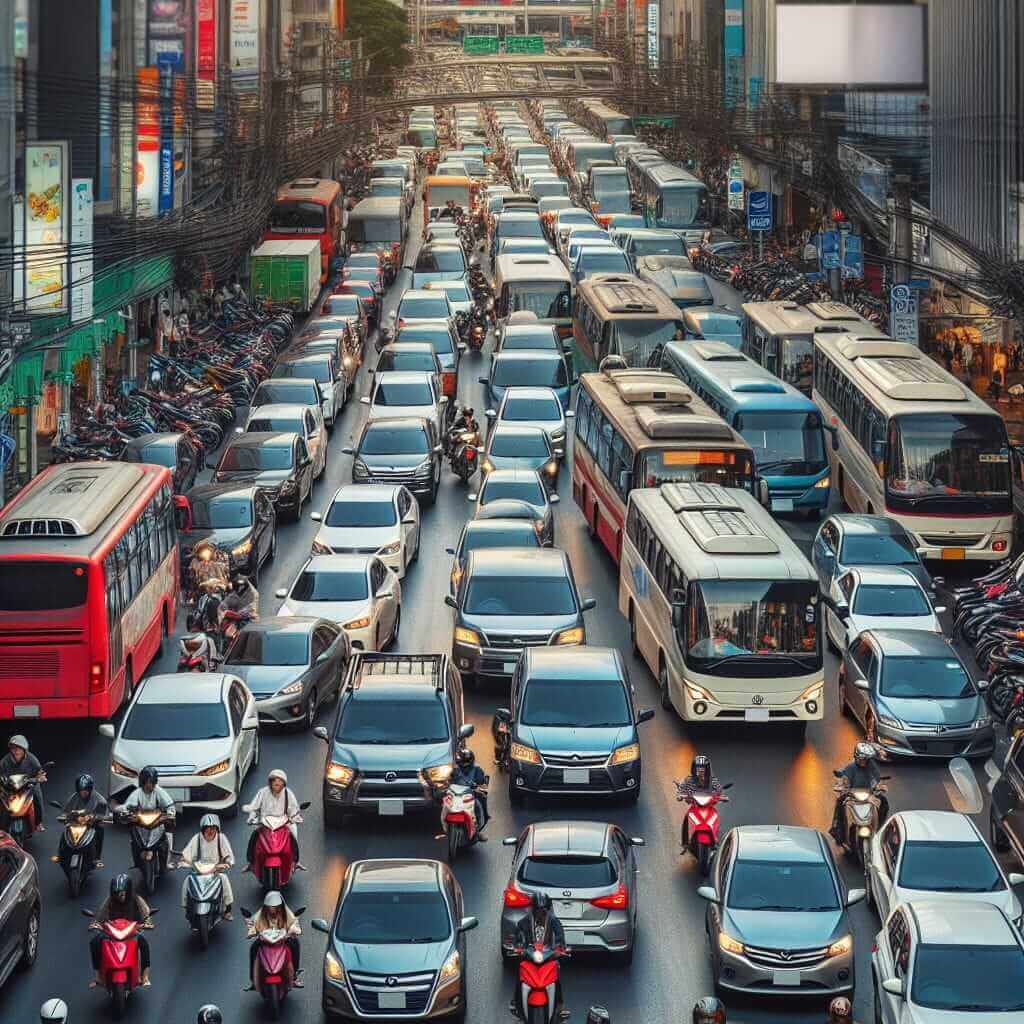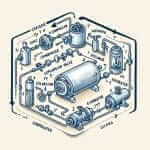Traffic congestion is a pervasive issue impacting cities worldwide, and it frequently surfaces as a discussion topic in the IELTS Speaking exam. Understanding its causes, effects, and potential solutions can significantly enhance your ability to articulate your thoughts and achieve a higher band score. This article provides a comprehensive guide to tackling traffic congestion in the IELTS Speaking test, equipping you with the necessary vocabulary, insights, and strategies.
Understanding the Task: Why Traffic Congestion Matters in IELTS
The IELTS Speaking test assesses your fluency, vocabulary, grammatical range, and coherence. Topics like traffic congestion allow examiners to evaluate your ability to:
- Analyze complex issues: Can you identify the multifaceted causes and consequences of traffic congestion?
- Present balanced opinions: Can you discuss both the positive and negative aspects, offering a nuanced perspective?
- Propose solutions: Can you suggest feasible measures to mitigate traffic congestion?
- Utilize topic-specific vocabulary: Do you possess a wide range of words and phrases related to urban planning, transportation, and environmental issues?
Delving Deeper: Causes and Effects of Traffic Congestion
To effectively address traffic congestion in your IELTS Speaking test, it’s crucial to have a firm grasp of its primary causes and effects.
Causes
- Rapid Urbanization: The influx of people into cities often outpaces the development of infrastructure, leading to increased vehicle density.
- Private Vehicle Dependency: A preference for private vehicles over public transportation contributes significantly to traffic congestion, especially during peak hours.
- Inadequate Public Transportation: Inefficient or unreliable public transportation systems force individuals to rely on private vehicles.
- Poor Urban Planning: Lack of foresight in urban planning, such as insufficient road networks or poorly designed intersections, exacerbates traffic problems.
- Peak Hour Concentration: The concentration of commuters traveling to and from work simultaneously creates predictable periods of severe congestion.
Effects
- Increased Travel Time: Traffic jams translate to longer commutes, reducing productivity and increasing stress levels.
- Economic Losses: Congestion leads to wasted fuel and decreased efficiency in the transportation of goods and services, impacting the economy.
- Environmental Damage: Idling vehicles release harmful pollutants into the atmosphere, contributing to air pollution and climate change.
- Reduced Quality of Life: Traffic congestion diminishes the overall quality of life by increasing stress, reducing leisure time, and negatively impacting health.
 Traffic Congestion in City Center
Traffic Congestion in City Center
Mastering the Language: Vocabulary for Traffic Congestion
Utilizing specific and varied vocabulary is key to achieving a high score in the IELTS Speaking test. Here are some useful words and phrases to discuss traffic congestion:
- Gridlock: A situation where traffic comes to a complete standstill.
- Bottleneck: A narrow point in a road or intersection that causes traffic to slow down or stop.
- Rush hour/Peak hour: The busiest times for traffic, usually in the morning and evening commutes.
- Congestion Charge: A fee levied on vehicles entering designated areas, particularly city centers, to discourage driving.
- Park-and-Ride: A system where commuters park their vehicles in designated lots outside city centers and utilize public transportation for the remainder of their journey.
- Sustainable Transportation: Eco-friendly modes of transport like cycling, walking, and public transportation.
Illustrating Your Points: Example IELTS Speaking Questions and Answers
Let’s examine how you can effectively incorporate the vocabulary and knowledge we’ve discussed into your IELTS Speaking responses.
Examiner: What are some of the main causes of traffic congestion in your opinion?
Candidate: “Well, I believe one major culprit is the rapid urbanization we’re witnessing globally. Cities are growing faster than ever, leading to a surge in vehicle density, which often overwhelms existing infrastructure. Additionally, many people still heavily rely on private vehicles due to the lack of efficient and reliable public transportation options.”
Examiner: What are the potential consequences of severe traffic congestion?
Candidate: “Traffic congestion has far-reaching consequences. Firstly, it results in increased travel times, leading to wasted productivity and heightened stress levels for commuters. Economically, congestion causes fuel wastage and hinders the efficient movement of goods and services. Moreover, idling vehicles release harmful pollutants, contributing significantly to air pollution and exacerbating climate change.“
Ace Your Test: Tips for Success
- Stay Updated: Keep abreast of current events related to traffic congestion and urban planning.
- Practice Regularly: Engage in mock speaking tests using authentic IELTS materials to build your confidence.
- Record Yourself: Listening to recordings of your practice sessions helps identify areas for improvement in fluency and pronunciation.
- Think Critically: Develop your ability to analyze problems, propose solutions, and present well-reasoned arguments.
- Expand Your Vocabulary: Actively learn and utilize a wide range of words and phrases related to transportation, urban planning, and environmental issues.
By following these strategies, you can confidently and effectively discuss traffic congestion in your IELTS Speaking test, enhancing your overall band score. Remember, thorough preparation is key to achieving your desired results.


